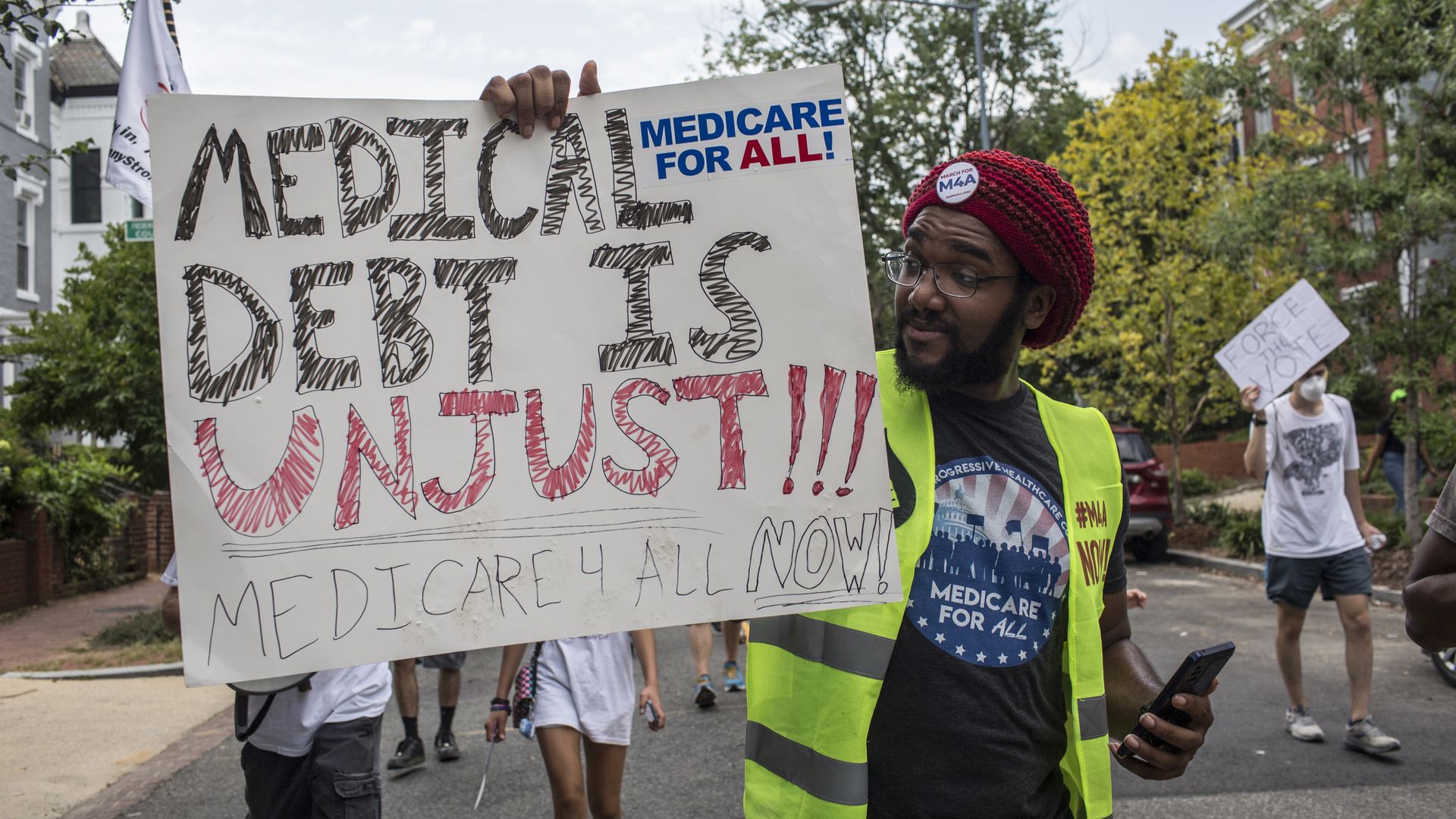Mar 11, 2022 - Health
America's giant medical debt
Add Axios as your preferred source to
see more of our stories on Google.

A man holds a sign as he takes part in the March for Medicare for All in Washington, D.C., in July 2021. Photo: Probal Rashid/LightRocket via Getty Images
